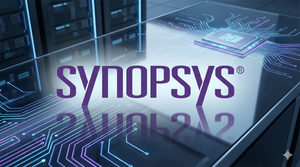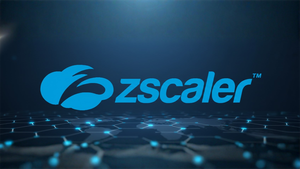Financial News
Three Phase 3 Trials of Datopotamab Deruxtecan-Based Combinations Initiated in Patients with Advanced Nonsquamous Non-Small Cell Lung Cancer
- TROPION-Lung10 is evaluating Daiichi Sankyo and AstraZeneca’s datopotamab deruxtecan plus rilvegostomig as first-line treatment for advanced or metastatic nonsquamous NSCLC with high PD-L1 expression without actionable genomic alterations
- TROPION-Lung14 is evaluating datopotamab deruxtecan plus osimertinib as first-line treatment for advanced or metastatic EGFR mutated nonsquamous NSCLC
- TROPION-Lung15 is evaluating datopotamab deruxtecan with or without osimertinib for advanced or metastatic EGFR mutated nonsquamous NSCLC that progressed on prior osimertinib
The first patients have been dosed in three global, randomized phase 3 trials evaluating the efficacy and safety of datopotamab deruxtecan (Dato-DXd)-based combinations in patients with locally advanced or metastatic nonsquamous non-small cell lung cancer (NSCLC).
Datopotamab deruxtecan is a specifically engineered TROP2 directed DXd antibody drug conjugate (ADC) discovered by Daiichi Sankyo (TSE: 4568) and being jointly developed by Daiichi Sankyo and AstraZeneca (LSE/STO/Nasdaq: AZN).
TROPION-Lung10 is evaluating datopotamab deruxtecan plus rilvegostomig, AstraZeneca’s PD-1/TIGIT bispecific antibody, or rilvegostomig alone versus pembrolizumab in patients with previously untreated locally advanced or metastatic nonsquamous NSCLC with high PD-L1 expression (tumor cells [TC] ≥ 50%) and without actionable genomic alterations.
TROPION-Lung14 is evaluating datopotamab deruxtecan plus osimertinib, AstraZeneca’s EGFR tyrosine kinase inhibitor (TKI), versus osimertinib alone in patients with previously untreated locally advanced or metastatic EGFR mutated nonsquamous NSCLC.
TROPION-Lung15 is evaluating datopotamab deruxtecan with or without osimertinib versus platinum-based doublet chemotherapy in patients with locally advanced or metastatic nonsquamous EGFR mutated NSCLC whose disease progressed on prior treatment with osimertinib.
“These three trials in either high PD-L1 expressing or EGFR mutated nonsquamous non-small cell lung cancer are critical to helping us understand the potential role of datopotamab deruxtecan in treating patients across different lines and types of lung cancer,” said Mark Rutstein, MD, Global Head, Oncology Clinical Development, Daiichi Sankyo. “Our growing TROPION clinical program, which now consists of seven phase 3 trials demonstrates our commitment to understanding the full potential of datopotamab deruxtecan in lung cancer.”
“Clinical research suggests that combining an antibody drug conjugate with a targeted treatment or a bispecific immunotherapy may drive stronger and more durable tumor responses in patients with a variety of cancers including lung cancer,” said Cristian Massacesi, MD, Chief Medical Officer and Oncology Chief Development Officer, AstraZeneca. “The initiation of these additional three phase 3 trials of datopotamab deruxtecan in combination with our agents, osimertinib and rilvegostomig illustrates our commitment to exploring potential synergies within our oncology pipeline as well as the full potential and combinability of this TROP2 directed antibody drug conjugate across multiple segments and settings of non-small cell lung cancer.”
About TROPION-Lung10
TROPION-Lung10 is a global, multicenter, open-label, three-arm phase 3 trial where patients will be randomized in a 2:1:2 ratio to evaluate the efficacy and safety of datopotamab deruxtecan (6.0 mg/kg) in combination with rilvegostomig (750 mg) or rilvegostomig (750 mg) monotherapy versus pembrolizumab (200 mg) monotherapy in adult patients with previously untreated locally advanced or metastatic nonsquamous NSCLC with high PD-L1 expression (TC ≥ 50%) and without actionable genomic alterations.
The dual primary endpoints of TROPION-Lung10 are progression-free survival (PFS) as assessed by blinded independent central review (BICR) and overall survival (OS) in patients with TROP2 positive tumors receiving datopotamab deruxtecan in combination with rilvegostomig versus the pembrolizumab arm. A pre-specified retrospective analysis from tumor biopsies collected pretreatment will be conducted following validation of a potential TROP2 biomarker determined by quantitative continuous scoring, a computational pathology approach.
Key secondary endpoints for all arms of the trial include PFS as assessed by BICR and investigator and OS in the intention-to-treat (ITT) population, objective response rate (ORR) as assessed by BICR and duration of response (DoR) as assessed by BICR and investigator in both TROP2 biomarker positive and the ITT populations. The safety and tolerability of datopotamab deruxtecan in combination with rilvegostomig and rilvegostomig monotherapy as compared with pembrolizumab also will be assessed.
TROPION-Lung10 will enroll approximately 675 patients in Asia, Europe, North America, Oceania and South America. For more information visit ClinicalTrials.gov.
The TIGIT component of rilvegostomig is derived from the clinical-stage anti-TIGIT antibody, COM902, developed by Compugen Ltd. (Nasdaq/TASE: CGEN).
About TROPION-Lung14
TROPION-Lung14 is a global, randomized, multicenter, open-label phase 3 trial evaluating the efficacy and safety of datopotamab deruxtecan (6.0 mg/kg) in combination with osimertinib (80 mg) versus osimertinib (80 mg) monotherapy in adult patients with previously untreated locally advanced or metastatic nonsquamous NSCLC with an EGFR mutation (Exon 19 deletion and/or L858R). The randomized period of the trial is preceded by a single-arm safety run-in period which will enroll approximately 20 patients to evaluate the combination therapy.
The primary endpoint of TROPION-Lung14 is PFS as assessed by BICR. Key secondary endpoints include central nervous system (CNS) PFS as assessed by CNS BICR, PFS as assessed by investigator, ORR as assessed by BICR and investigator, OS and safety.
TROPION-Lung14 will enroll approximately 580 patients in Asia, Europe, North America, Oceania and South America. For more information visit ClinicalTrials.gov.
About TROPION-Lung15
TROPION-Lung15 is a global, multicenter, open-label, three-arm phase 3 trial where patients will be randomized in a 1:1:1 ratio to evaluate the efficacy and safety of datopotamab deruxtecan (6.0 mg/kg) as monotherapy or in combination with osimertinib (80 mg) versus platinum-based doublet chemotherapy (pemetrexed in combination with carboplatin or cisplatin followed by pemetrexed maintenance) in adult patients with locally advanced or metastatic nonsquamous NSCLC with at least one EGFR mutation (G719X, Ex19del, S768I, L858R, and/or L861Q) and with disease progression following prior treatment with osimertinib.
The dual primary PFS endpoints of TROPION-Lung15 are PFS as assessed by BICR for datopotamab deruxtecan monotherapy versus chemotherapy and datopotamab deruxtecan in combination with osimertinib versus chemotherapy. Key secondary endpoints include investigator-assessed CNS PFS as assessed by CNS BICR, ORR and DoR as assessed by BICR, OS and safety.
TROPION-Lung15 will enroll approximately 630 patients in Asia, Europe, North America, Oceania and South America. For more information visit ClinicalTrials.gov.
About Advanced Non-Small Cell Lung Cancer
Nearly 2.5 million lung cancer cases were diagnosed globally in 2022.1 NSCLC is the most common type of lung cancer, accounting for about 85% of cases.2 Approximately 75% and 25% of NSCLC tumors are of nonsquamous or squamous histology, respectively, with EGFR mutations occurring in 14% to 38% of all NSCLC tumors worldwide.3,4 A majority of EGFR mutations occur in tumors with nonsquamous histology.5
For patients with tumors that do not express a known actionable genomic alteration (e.g., EGFR, ALK, ROS1, NTRK, BRAF, RET or MET), the current first-line standard of care in the metastatic setting is an immune checkpoint inhibitor and/or platinum-based chemotherapy based on PD-L1 expression.6,7,8 For certain patients with tumors that have EGFR mutations, the established first-line treatment in the metastatic setting is an EGFR TKI.9 While these treatment strategies have improved outcomes in the first-line metastatic setting, most patients eventually experience disease progression.10,11,12
TROP2 is a protein broadly expressed in the majority of NSCLC tumors.13 There is currently no TROP2 directed ADC approved for the treatment of lung cancer.8,9
About Datopotamab Deruxtecan (Dato-DXd)
Datopotamab deruxtecan (Dato-DXd) is an investigational TROP2 directed ADC. Designed using Daiichi Sankyo’s proprietary DXd ADC Technology, datopotamab deruxtecan is one of six DXd ADCs in the oncology pipeline of Daiichi Sankyo, and one of the most advanced programs in AstraZeneca’s ADC scientific platform. Datopotamab deruxtecan is comprised of a humanized anti-TROP2 IgG1 monoclonal antibody, developed in collaboration with Sapporo Medical University, attached to a number of topoisomerase I inhibitor payloads (an exatecan derivative, DXd) via tetrapeptide-based cleavable linkers.
A comprehensive global clinical development program is underway with more than 20 trials evaluating the efficacy and safety of datopotamab deruxtecan across multiple cancers, including NSCLC, triple negative breast cancer and HR positive, HER2 negative breast cancer. The program includes seven phase 3 trials in lung cancer and five phase 3 trials in breast cancer evaluating datopotamab deruxtecan as a monotherapy and in combination with other anticancer treatments in various settings.
About the Daiichi Sankyo and AstraZeneca Collaboration
Daiichi Sankyo and AstraZeneca entered into a global collaboration to jointly develop and commercialize ENHERTU in March 2019 and datopotamab deruxtecan (Dato-DXd) in July 2020, except in Japan where Daiichi Sankyo maintains exclusive rights for each ADC. Daiichi Sankyo is responsible for the manufacturing and supply of ENHERTU and datopotamab deruxtecan.
About the ADC Portfolio of Daiichi Sankyo
The Daiichi Sankyo ADC portfolio consists of seven ADCs in clinical development crafted from two distinct ADC technology platforms discovered in-house by Daiichi Sankyo.
The ADC platform furthest in clinical development is Daiichi Sankyo’s DXd ADC Technology where each ADC consists of a monoclonal antibody attached to a number of topoisomerase I inhibitor payloads (an exatecan derivative, DXd) via tetrapeptide-based cleavable linkers. The DXd ADC portfolio currently consists of ENHERTU, a HER2 directed ADC, and datopotamab deruxtecan (Dato-DXd), a TROP2 directed ADC, which are being jointly developed and commercialized globally with AstraZeneca. Patritumab deruxtecan (HER3-DXd), a HER3 directed ADC, ifinatamab deruxtecan (I-DXd), a B7-H3 directed ADC, and raludotatug deruxtecan (R-DXd), a CDH6 directed ADC, are being jointly developed and commercialized globally with Merck. DS-3939, a TA-MUC1 directed ADC, is being developed by Daiichi Sankyo.
The second Daiichi Sankyo ADC platform consists of a monoclonal antibody attached to a modified pyrrolobenzodiazepine (PBD) payload. DS-9606, a CLDN6 directed PBD ADC, is the first of several planned ADCs in clinical development utilizing this platform.
Datopotamab deruxtecan, ifinatamab deruxtecan, patritumab deruxtecan, raludotatug deruxtecan, DS-3939 and DS-9606 are investigational medicines that have not been approved for any indication in any country. Safety and efficacy have not been established.
About Daiichi Sankyo
Daiichi Sankyo is an innovative global healthcare company contributing to the sustainable development of society that discovers, develops and delivers new standards of care to enrich the quality of life around the world. With more than 120 years of experience, Daiichi Sankyo leverages its world-class science and technology to create new modalities and innovative medicines for people with cancer, cardiovascular and other diseases with high unmet medical need. For more information, please visit www.daiichisankyo.com.
_________________________________
References
1 World Health Organization. Global Cancer Observatory: Lung. Accessed October 2024.
2 Economopoulou P, et al. Ann Transl Med. 2018; 6(8):138
3 National Cancer Institute. SEER Cancer Statistics Factsheets: Lung and Bronchus Cancer, CSR 1975-2017. Accessed October 2024.
4 Pretelli G, et al. Int J Mol Sci. 2023; 24, 8878.
5 Prabhakar C. Translational Lung Cancer Research. 2015; 4(2), 110-118.
6 Mok TSK, et al. Lancet. 2019 May 4;393(10183):1819-1830.
7 Brahmer J.R. et al. KEYNOTE-024 5-year OS update. ESMO 2021 Virtual Congress. 2021 Sept 16 – 20; Abstract LBA51.
8 Rodríguez-Abreau D, et al. Ann Onc. 2021 Jul;32(7):881-895.
9 American Cancer Society. Targeted Drug Therapy for Non-Small Cell Lung Cancer. Accessed October 2024.
10 Chen R, et al. J Hematol Oncol. 2020:13(1):58.
11 Majeed U, et al. J Hematol Oncol. 2021;14(1):108.
12 Pircher A, et al. Anticancer Research. 2020;70(5):287-294.
13 Mito R, et al. Pathol Int. 2020;70(5):287-294.
View source version on businesswire.com: https://www.businesswire.com/news/home/20241029294755/en/
Contacts
Global/US:
Jennifer Brennan
Daiichi Sankyo, Inc.
jennifer.brennan@daiichisankyo.com
+1 908 900 3183 (mobile)
Japan:
Daiichi Sankyo Co., Ltd.
DS-PR@daiichisankyo.co.jp
Investor Relations Contact:
DaiichiSankyoIR@daiichisankyo.co.jp
More News
View More




Recent Quotes
View More
Quotes delayed at least 20 minutes.
By accessing this page, you agree to the Privacy Policy and Terms Of Service.



